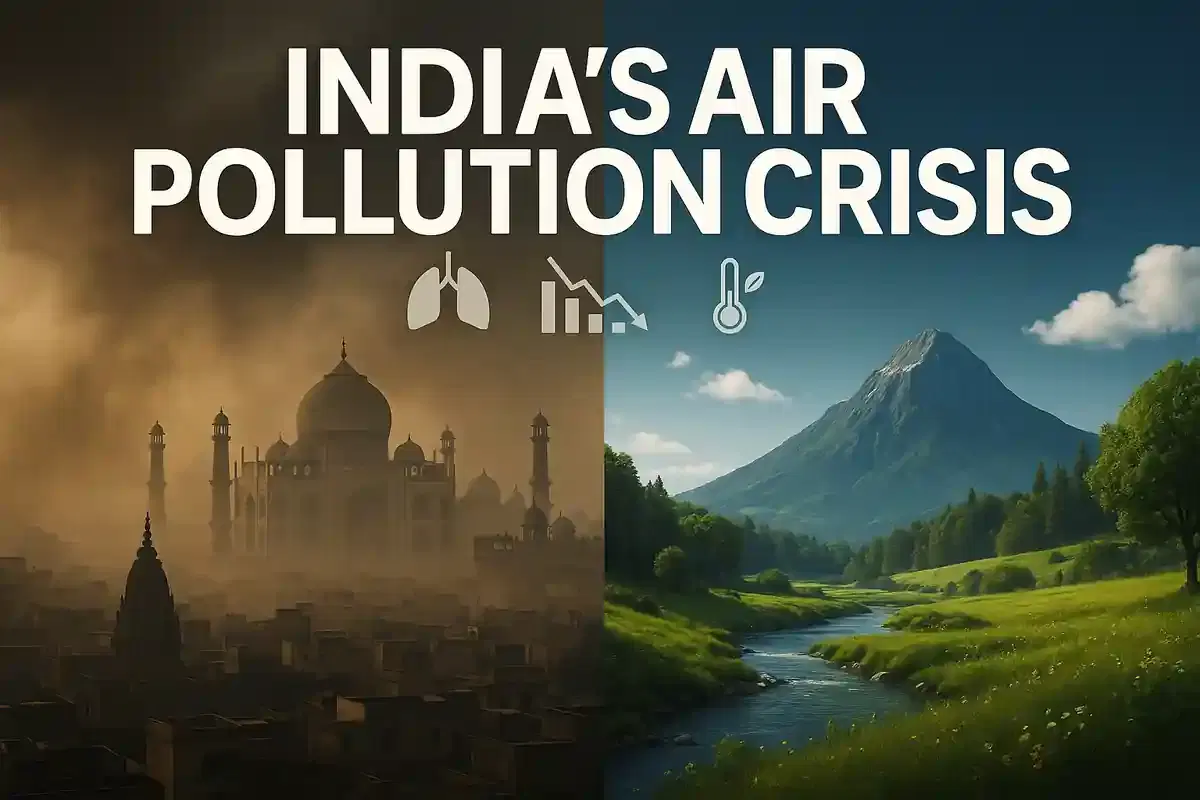India Faces Over 1.7 Million Deaths and Significant Economic Loss Due to Air Pollution and Climate Change, Says Lancet Report
Economy
|
29th October 2025, 12:50 AM

▶
Short Description :
Detailed Coverage :
The Lancet Countdown on Health and Climate Change, a major international report, states that air pollution is a leading cause of death in India, responsible for over 1.7 million premature deaths in 2022. This figure shows a concerning 38% increase since 2010. The report attributes a significant portion of these deaths to the burning of fossil fuels, particularly coal in thermal power plants and petrol used in road transportation.
Impact: This news has a substantial impact on the Indian stock market and its economy. Sectors like healthcare may see increased demand due to air pollution-related illnesses. The energy sector, heavily reliant on fossil fuels, could face greater regulatory pressure. Agriculture and construction sectors are vulnerable to climate change impacts like extreme heat, affecting their productivity and labor force. Insurance companies might face higher claims related to health and climate-induced damages. Overall, the findings highlight significant economic externalities and potential risks to India's long-term economic stability and growth, prompting a closer look at environmental and climate-resilient policies by investors. Rating: 8/10
Difficult Terms: PM 2.5: Ultra-fine particulate matter with a diameter of 2.5 micrometers or less, small enough to penetrate deep into the lungs and bloodstream. Anthropogenic: Originating from human activity. Monetised value: The financial worth or cost assigned to something, often intangible, like premature death or environmental damage. GDP (Gross Domestic Product): The total monetary value of all finished goods and services produced within a country in a specific time period. Non-communicable diseases (NCDs): Chronic diseases that are not passed from person to person, such as heart disease, cancer, diabetes, and respiratory diseases. Urban greenness: The amount of vegetation and tree cover within city areas. Fossil fuels: Natural fuels such as coal or gas, formed in the geological past from the remains of living organisms. Thermal power plants: Power stations where heat, typically from burning fossil fuels, is used to generate electricity. Pulmonologist: A doctor who specializes in the respiratory system. Climate change: Long-term shifts in temperatures and weather patterns.